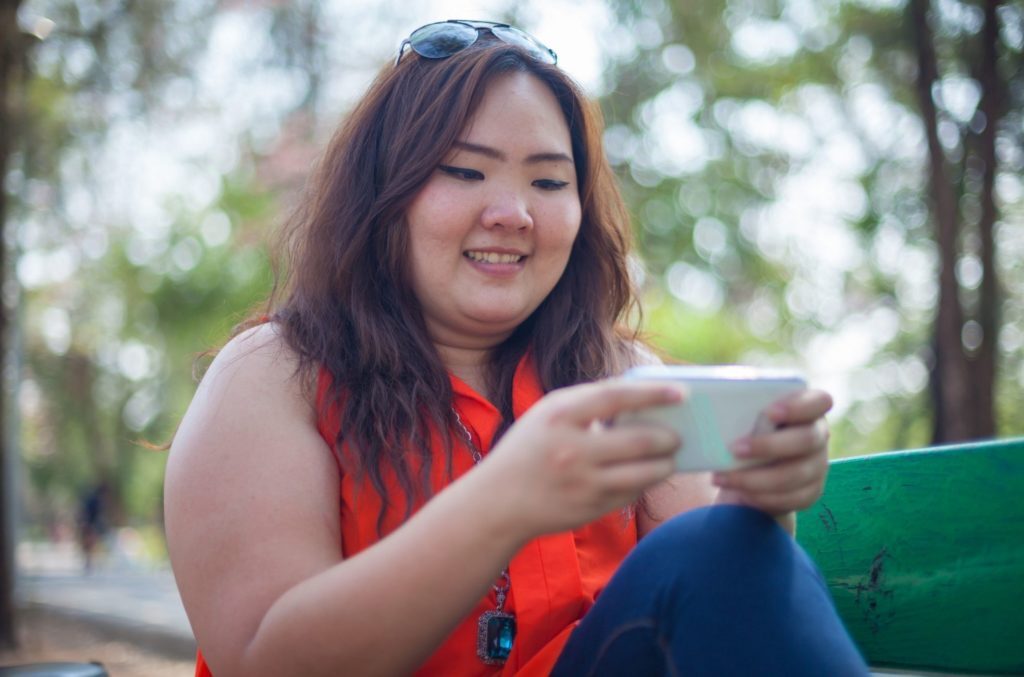Let’s look at some questions many of us have grappled with throughout the pandemic: What kinds of connection do humans need for positive mental health? And what impact does social media have on mental health? Does it meet the need for connection or leave us fundamentally lacking the kind of connection that helps sustain our wellbeing? Let’s find out.
Let’s look at some questions many of us have grappled with throughout the pandemic: What kinds of connection do humans need for positive mental health? And what impact does social media have on mental health? Does it meet the need for connection or leave us fundamentally lacking the kind of connection that helps sustain our wellbeing? Let’s find out.
The need to connect
Humans are relational beings, dependent upon face-to-face interactions, and much of our communication is relayed through non-verbal exchanges. 93% of communication is non-verbal, meaning it depends on vocal tone, inflection, facial expression, and body language.
Here’s the issue—communications via text and direct messages lack nuance, intonation, and body language.
And when text messaging becomes the primary source of communication, how do we lose the development of social skills that would otherwise be part of our experience?
Maybe you find it uncomfortable to talk on the phone. Plus, how often do your text conversations lead to conflict due to misinterpretation or delayed response?
Social media seems to be replacing breadth with depth when it comes to personal connections. Yes, it might be nice to have 150 people wish you a happy birthday on your Facebook feed. But how does clicking an automated prompt compare to an actual birthday card or phone call?
How technology has changed us
Since the mid-2000s, the advancement of technology and social media has infiltrated nearly every aspect of daily life, fundamentally changing how we communicate with and relate to others.
Social media allows a window into the lives of friends, family, celebrities, and complete strangers. It drives trends in fashion and plastic surgery while influencing political movements. It creates fame and spurs social change. And it continues to evolve at what feels like an exponential rate.
Here are some of the ways technology has changed human life:
- We have instant access to an infinite supply of information.
- We can communicate instantly with friends and family, regardless of physical location.
- We’re moving toward a global society as news information, entertainment, and trends spread at an exponential rate across borders and continents.
- Throughout the pandemic, it saved lives by allowing us to stay connected and work remotely.
- Technology has forever changed the way we communicate, gather, and disseminate information, as well as the way we work.
How social media affects mental health
Again, humans are relational beings who thrive on secure connections with others. Factors that contribute to these connections include eye contact, facial expression, vocal tone, and inflection. The absence of meaningful connections contributes to isolation, anxiety, and depression.
But how social media affects mental health is a complex question because social media isn’t just helpful or harmful—it can be both at the same time. Read more about the pros and cons of social media.
On the one hand, social media is a positive thing when it comes to connections that help sustain our wellbeing.
For instance, mental health and social media have been positively correlated during the pandemic lockdowns and quarantines. With no other options for connecting with folks outside our individual households, social media gave us access to a more expansive level of connection and togetherness than would otherwise have been possible.
Social media has also allowed for the possibility of creative expression in diverse and inclusive ways. Regardless of what matters to you, the chances are good that there’s an online community somewhere that feels the same way.
Finally, social media has also allowed us to raise awareness around social and political movements, helping disenfranchised populations fight for equality and justice.
Dangers of social media
But there are also problems with social media: it’s correlated with higher rates of anxiety, depression, social phobia, and isolation, as well as insomnia and other sleep disturbances.
When it comes to mental health, there’s early information showing a connection between social media & anxiety. For instance, one study that looked at emerging adults between the ages of 18 and 22 shows that social media use is correlated with higher levels of dispositional anxiety, and the likelihood of an anxiety disorder. And several studies demonstrate the relationship between social media and depression.
Here are some reasons social media may be negatively correlated to mental health:
- We’re inundated with information but lacking in human warmth and empathy.
- There’s a constant invitation for comparison, making us feel pressure to look perfect and present a persona.
- Curating self-image on social media takes us away from our lived experience.
- There’s more focus on ourselves: seeing ourselves all day long on Zoom or through social media posts.
- We’re more likely to focus on ourselves obsessively, leading to higher rates of both narcissism and low self-esteem.
- Text messages are often misinterpreted since they lack nuance and tone.
- Young people aren’t given a chance to develop necessary social skills since more and more communication happens via text and instant messages.
- Without these social and personal skills, young people lack the distress tolerance necessary to form and maintain robust relationships.
- Lack of social skills may also cause the breakdown of communications in real-time.
There are also some added dangers when it comes to how social media affects teens. The experience of cyberbullying can significantly impact pre-teens and teens and is correlated with higher rates of depression, mood disorders, and suicidality.
Using social in a healthy way
So, is social media bad? Not necessarily. Like in so many other cases, social media isn’t inherently bad or good. The impact social media has on you depends on your relationship with this tool and how you use it.
If you want to use social media in a mentally healthy way, try using it as a tool to enhance relationships, not replace them.
To further limit the potentially negative impact of social media,
- Regulate your use. You can use an app that blocks your social media accounts after a certain amount of time. Try Freedom, Offtime, or Flipd.
- Limit the amount of time you spend on social media and screens in general.
- Use social platforms with intention and avoid mindless scrolling.
- Put smartphones away when communicating face-to-face. Presence of a smartphone while communicating fosters less empathy.
If any of these feel too challenging, see if you can approach mindful screen use with accountability. Find a friend, partner, or co-worker who’s also interested in cutting back and approach it together.
Takeaway
- Social media has positive effects, but without regulation, it can lead to poor mental health.
- Studies show that the more exposure you have to social media, the more likely you are to experience anxiety, depression, social phobia, low self-esteem, narcissism, and insomnia.
- To combat the negative impact of social media on mental health, limit your use, use social platforms with intention, and put your phone away during in-person hangouts.












